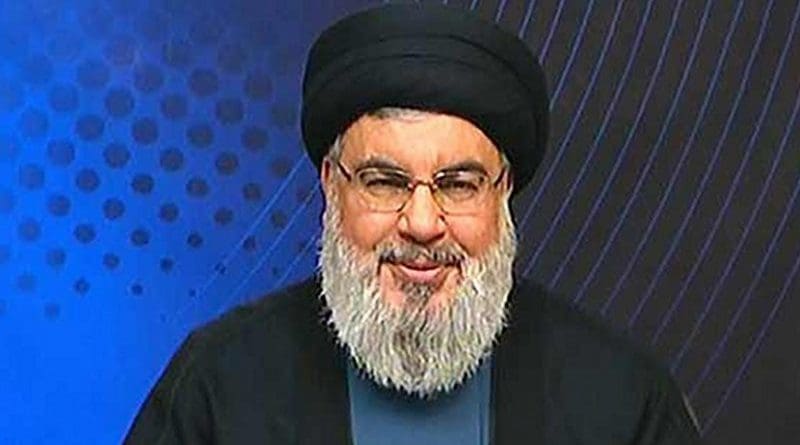Don’t Be Fooled By Talk Of ‘Progressive’ Hezbollah – OpEd
By Arab News
By Diana Moukalled*
When we speak of Hezbollah’s control over decision-making in Lebanon, not only are we referring to political decisions, but also to social aspects. Many matters are being controlled by Hezbollah’s perspective, and this has been increasingly applied to public life in Lebanon in the last few years.
Last week, regions under Hezbollah’s direct rule were commemorating Ashura; rituals associated with this occasion are soaring year after year and nowadays we do not only see black flags and motivational phrases scattered across neighborhoods and roads, but we also hear harsh speeches in the heart of sermons that are broadcast on a daily basis through loudspeakers and screens, to which a broad audience of both genders are invited to attend.
This year, social relationships are receiving more attention than politics and clerics’ speeches give us an idea of what Hezbollah’s approach would be like in the next phase.
In one of his speeches, Hezbollah’s Deputy Secretary-General, Sheikh Naim Qassem, mocked divorced women and said they were unfit to teach children in schools. While his opinion triggered negative reactions, prompting him to rectify his statement, in fact Qassem’s views of women are in line with Hezbollah’s ideologies.
We can easily see how clerics affiliated with Hezbollah are incessantly discussing social issues, such as criticizing the mixing of sexes at nightclubs and similar venues, comedy shows, and homosexuals. They are also talking about women, their role in society and their attire. What is even more pathetic is how people are shocked by this kind of speech; not only that, some of Hezbollah’s leftist and Christian allies advocated Qassem’s statements, as well as those of other clerics, among which was a statement by Hezbollah’s chief, Hassan Nasrallah, who openly called for legislating child marriage. Yet those who claim to be progressive and call themselves leftists continue to support Hezbollah’s regional and social projects.
We should admit that Hezbollah succeeded in another matter alongside controlling Lebanon’s decision-making. It succeeded in building an image that depicts the party as far from being fundamentalist to the point that there are people who believe that the party fighting in Syria for sectarian reasons would allow and tolerate a diverse, free society in Lebanon. Therefore, we see that those who have such beliefs are bewildered when Hezbollah officials utter backward statements about women, arts or homosexuals.
Most likely, “fighting Israel” and how they incessantly speak of it on every TV channel is what is behind this bewilderment, for there is a certain approach that tends to forgive the party’s archaic ideologies and regard it as progressive as long as it is fighting Israel.
Hezbollah is a reactionary party that aspires to bring back bygone times, especially in terms of the role of women, thereby acting like any other religious party. The attempts of leftists to create a “progressive” image for Hezbollah, in comparison with other rising fundamentalist groups, will soon backfire because Hezbollah’s nature is all about fighting and power and, when the party takes full control of power, it will practice and apply what it knows best: Ruling through ideology.
It is ironic when Christian and communist groups in Lebanon justify Hezbollah’s statements by describing them as a slip of the tongue or a minor issue in the face of major ones — like fighting Israel and extremists. Hezbollah’s fight in Syria to help the criminal regime required the inclusion of non-Hezbollah factions to support its battle. However, those who imagine they are partners with Hezbollah in its missions will be its first victims after the mission is over… and the early signs of this are looming on the horizon.
• Diana Moukalled is a veteran journalist with extensive experience in both traditional and new media. She is also a columnist and freelance documentary producer. Twitter @dianamoukalled

